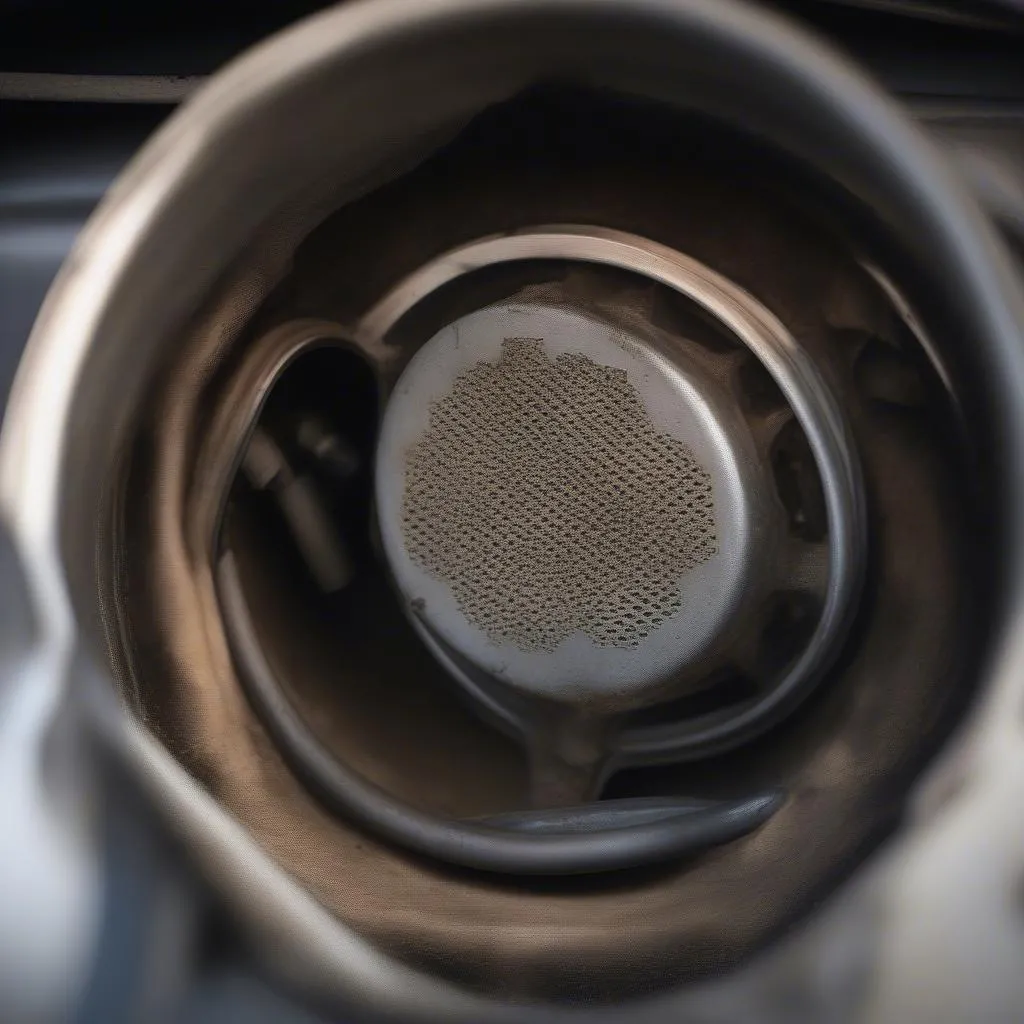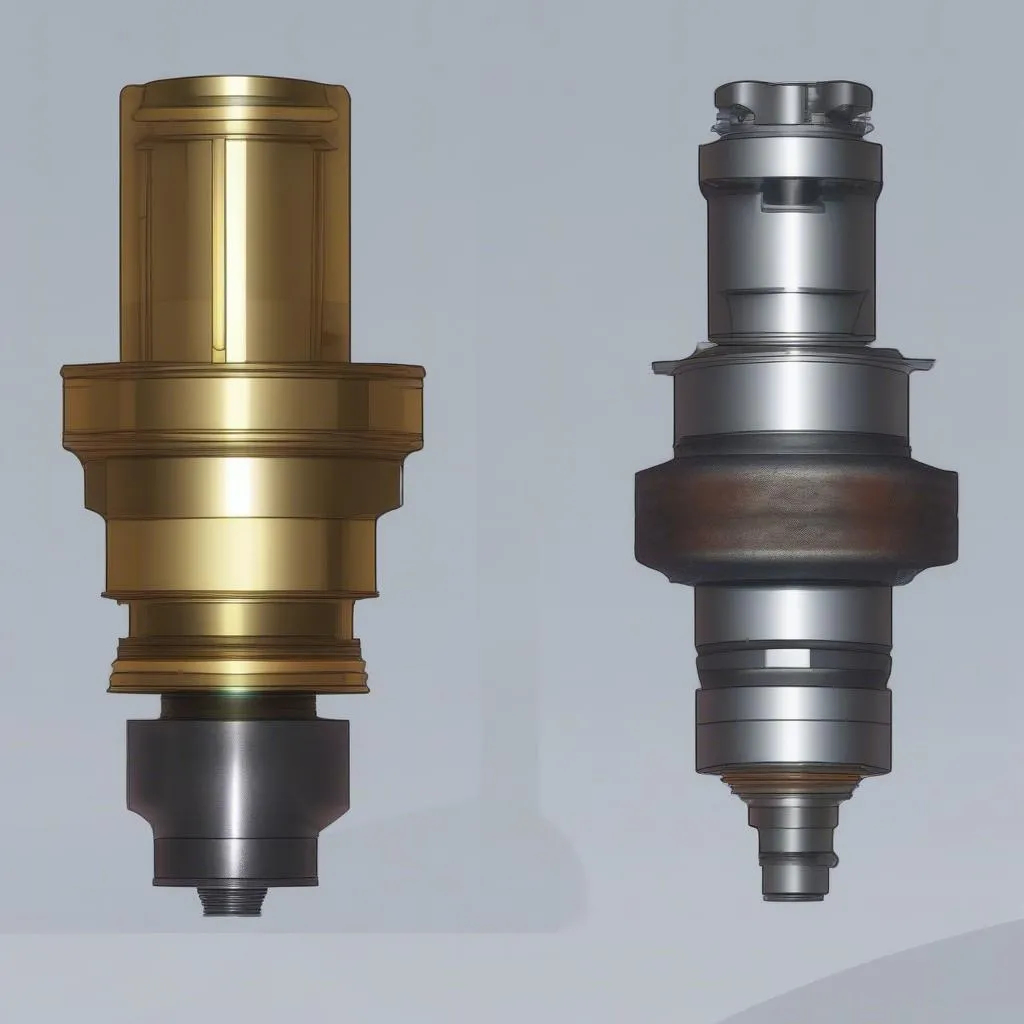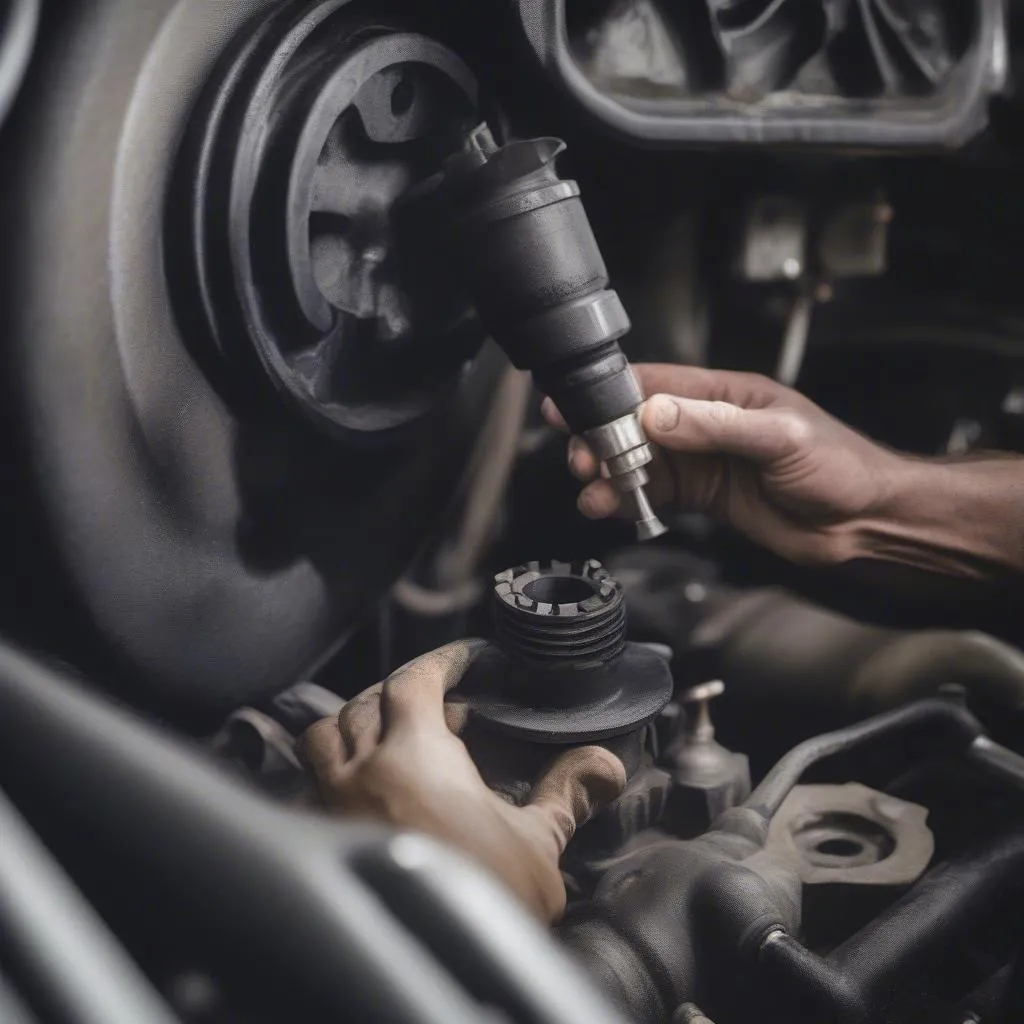Mercedes diesel engines are known for their durability and efficiency. However, like any vehicle, they can experience issues over time. Understanding potential problems and how to address them can save you time, money, and frustration down the road. This article will cover common Mercedes diesel fixes and provide guidance on how to keep your car performing at its best.
Common Mercedes Diesel Problems and Solutions
Let’s dive into some specific problems you might encounter with your Mercedes diesel:
1. Diesel Particulate Filter (DPF) Issues
Cause: The DPF traps soot from the exhaust gases. Over time, the DPF can become clogged, especially with frequent city driving.
Symptoms: Reduced engine power, increased fuel consumption, and a “Check Engine” light are common DPF-related symptoms.
Solution:
- DPF Regeneration: Your Mercedes might automatically initiate a regeneration process to burn off the excess soot. However, you might need to drive at highway speeds for a certain duration to facilitate this.
- Mechanic Assistance: If a regeneration isn’t sufficient, a mechanic may need to clean or replace the DPF.
 diesel particulate filter
diesel particulate filter
2. Fuel Injector Problems
Cause: Fuel injectors can become clogged or wear down, affecting fuel delivery and combustion.
Symptoms: Rough idling, engine misfires, and decreased fuel efficiency can point to injector issues.
Solution:
- Injector Cleaning: Specialized cleaning solutions can sometimes remove deposits and restore injector function.
- Injector Replacement: Severely worn or damaged injectors need replacement.
 fuel injector comparison
fuel injector comparison
3. Turbocharger Issues
Cause: The turbocharger increases engine power. Over time, the turbocharger’s bearings can wear, or the vanes can become damaged.
Symptoms: Loss of power, unusual whistling noises from the engine, and excessive smoke from the exhaust are signs of potential turbocharger problems.
Solution:
- Turbocharger Repair: Depending on the issue, the turbocharger might be repairable.
- Turbocharger Replacement: In cases of severe damage, a turbocharger replacement is necessary.
4. EGR Valve Malfunction
Cause: The Exhaust Gas Recirculation (EGR) valve redirects a portion of exhaust gases back into the engine for emissions control. However, it can get clogged with carbon buildup.
Symptoms: Rough idling, engine hesitation, and increased emissions can indicate EGR valve problems.
Solution:
- EGR Valve Cleaning: You can sometimes clean the EGR valve to remove carbon buildup.
- EGR Valve Replacement: A malfunctioning EGR valve might require replacement.
 egr valve cleaning
egr valve cleaning
Diagnostic Tools for Mercedes Diesel Fixes
Using the right diagnostic equipment is crucial for accurate troubleshooting and repair.
OBD-II Scanners: These scanners connect to your vehicle’s onboard computer to read and clear error codes, giving you valuable insights into the problem.
Mercedes-Specific Scanners: Advanced scanners designed explicitly for Mercedes vehicles offer more detailed diagnostic information and can access manufacturer-specific systems. Consider options like those offered by CARDIAGTECH for a comprehensive diagnostic solution.
FAQs about Mercedes Diesel Fixes
Here are answers to some commonly asked questions:
Q: Why is my Mercedes diesel losing power?
A: Several factors can cause power loss, including DPF issues, turbocharger problems, fuel system malfunctions, or sensor failures. Using a diagnostic scanner to identify the root cause is essential.
Q: How often should I service my Mercedes diesel?
A: Adhering to the manufacturer’s recommended service intervals is vital. “As a general rule of thumb,” says automotive expert John Miller, author of “The Complete Guide to Diesel Engine Maintenance,” “most Mercedes diesel vehicles require servicing every 10,000 miles or once a year, whichever comes first.”
Q: Can I use any diesel fuel in my Mercedes?
A: Using high-quality, low-sulfur diesel fuel is recommended for optimal performance and longevity of your Mercedes diesel engine.
Conclusion
Addressing Mercedes diesel fixes promptly can help avoid costly repairs and keep your vehicle running efficiently for years to come. Combining your knowledge with the proper diagnostic tools and professional assistance when needed can make all the difference in maintaining your Mercedes diesel’s performance and reliability.
